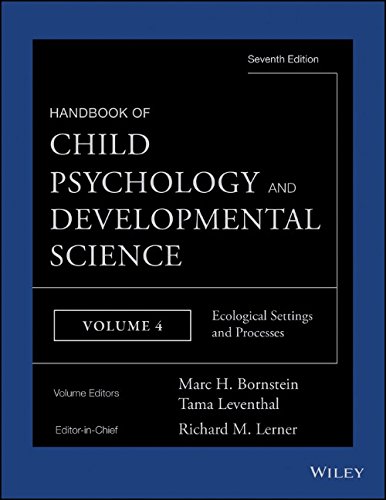

Most ebook files are in PDF format, so you can easily read them using various software such as Foxit Reader or directly on the Google Chrome browser.
Some ebook files are released by publishers in other formats such as .awz, .mobi, .epub, .fb2, etc. You may need to install specific software to read these formats on mobile/PC, such as Calibre.
Please read the tutorial at this link: https://ebookbell.com/faq
We offer FREE conversion to the popular formats you request; however, this may take some time. Therefore, right after payment, please email us, and we will try to provide the service as quickly as possible.
For some exceptional file formats or broken links (if any), please refrain from opening any disputes. Instead, email us first, and we will try to assist within a maximum of 6 hours.
EbookBell Team

4.0
36 reviewsThe Handbook of Child Psychology and Developmental Science, a four-volume reference, is the field-defining work to which all others are compared. First published in 1946, and now in its Seventh Edition, the Handbook has long been considered the definitive guide to the field of developmental science.
Volume 4: Ecological Settings and Processes in Developmental Systems is centrally concerned with the people, conditions, and events outside individuals that affect children and their development. To understand children's development it is both necessary and desirable to embrace all of these social and physical contexts. Guided by the relational developmental systems metatheory, the chapters in the volume are ordered them in a manner that begins with the near proximal contexts in which children find themselves and moving through to distal contexts that influence children in equally compelling, if less immediately manifest, ways. The volume emphasizes that the child's environment is complex, multi-dimensional, and structurally organized into interlinked contexts; children actively contribute to their development; the child and the environment are inextricably linked, and contributions of both child and environment are essential to explain or understand development.
The scholarship within this volume and, as well, across the four volumes of this edition, illustrate that developmental science is in the midst of a very exciting period. There is a paradigm shift that involves increasingly greater understanding of how to describe, explain, and optimize the course of human life for diverse individuals living within diverse contexts. This Handbook is the definitive reference for educators, policy-makers, researchers, students, and practitioners in human development, psychology, sociology, anthropology, and neuroscience.